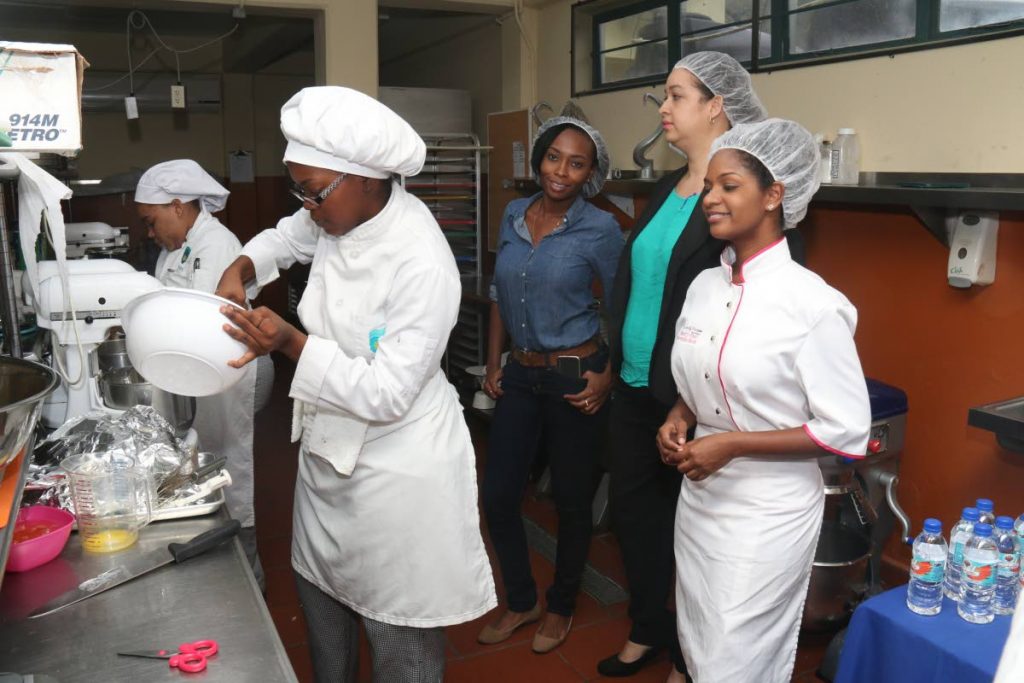$212m in state funds but tourism school struggled

THE TT Hospitality and Tourism Institute (TTHTI) fell into financial constraints and was forced to close after it operated for close to two decades with half of its income from government subventions.
In spite of millions being pumped into the institution annually, there was little accountability for the money spent as requests from the ministries of planning and education were rebuffed by the board that it was privately-run.
In a 28-page media release last week, the former chief executive officer, Brian Frontin, said the way the institute was being managed before he took office in 2017 was based solely on government subvention. His vision was to wean the school off government funding and make it self-sufficient.
When subventions ended in 2017, the institute still struggled financially, and in 2019 the management turned once again to the Ministry of Education informing them that the subventions were crucial to its survival. In a letter to the ministry, Frontin said for the school to become self-reliant its operating costs needed to decrease and school fees had to be increased. With no response from the ministry, Frontin pursued his vision resulting in TTHTI no longer relying on accreditation from the Accreditation Council of TT (ACTT) but only registration. This meant the students could no longer be funded through the Government Assistance for Tuition Expenses (GATE) programme and school fees were increased. TTHTI then sought accreditation from the American Hotel & Lodging Educational Institute (AHLEI).
Prior to this, the institute and the ministry had a “gentleman’s agreement” that fees would not be increased as long as the subventions were paid, Frontin said in his statement.
TTHTI announced its closure on August 21, via a media release, and said it could no longer operate because of financial challenges, with covid19 adding an additional burden on operations.
One day after the announcement, Education Minister Dr Nyan Gadsby-Dolly said between 2016 to 2018 attempts were made to meet with TTHTI “to discuss certain anomalies as well as non-compliance with the reporting requirements established by the Ministry of Finance.”
Another financial anomaly was TTHTI increasing its staff considerably between 2007 to 2016, which was done without increasing student intake or increasing student fees. During this time, there were also two wage increases.
The operating cost, according to Frontin, increased from $5.5 million in 2000 to over $34 million in 2015 with an income of $4 million in 2000 to $13.4 million in 2015, before his appointment. He described this as “reckless and negligent.”
Frontin said although TTHTI was written to about their lack of accounting for subventions, it still received disbursements up to 2017. Between 1996, when TTHTI was formed, and 2017, the government paid out some $212 million in subventions to the institute.
In response to Gadsby-Dolly’s comments about non-compliance, he said he was never asked to account for state funds or asked to meet to discuss the matter and it was the former executive director, Dr Pat Butcher, who would have had to account for the state funding. Butcher was executive director from 1996 to 2017.
When contacted, Butcher said she would not comment as the matter is now before the courts. She was dismissed in 2017.
“My matter is before the court and is sub judice at this time, hence the reason for my inability to give a response. All will be revealed in the fullness of time.”
Frontin claims ACTT and Education Ministry prejudiced against TTHTI
In his statement, Frontin claimed the accreditation council and Education Ministry also made it difficult for TTHTI to operate.
“The sudden and unexplained withholding of the outstanding subvention amounts would be prejudicial to students and to the wider hospitality and tourism industry, should the TTHTI become unable to sustain its operations. I am aware that the TTHTI issued nine (9) letters of correspondence between April and November 2017 making enquiries as unknown reasons for the withholding of subventions payments and non-reimbursements of GATE refunds (for students enrolled as far back as 2013).”
In a letter to ACTT on August 2, 2019, Frontin accused the council and the ministry of prejudice after the council wrote to the institute saying it was in danger of losing accreditation even before the valuation process began.
The process was delayed after TTHTI objected to the demand for payment for two valuators and what he described as a lack of transparency by the council in its valuation process. Frontin said the decision by ACTT to use Bernice Critchlow-Earle in the evaluation, even though she is a consultant with Caribbean Tourism Learning System, a competing regional tourism school, was in “extremely bad faith.”
The prejudice, he said, continued with the ministry withholding recurrent subventions GATE payments for the periods 2017 through 2020, which was eventually paid after TTHTI threatened to sue the ministry.
ACTT also billed TTHTI for the valuation in 2018, which was not done in 2013 when it was first accredited. In an internal budget for a two-day assessment between July 4, 2018 to July 6, 2018, ACTT charged the institute US$1,000 for two members of the Accreditation Review Committee (ARC). TTHTI, as is customary, had to pay $68,544 to be reviewed for their re-accreditation, inclusive of the new ARC fee. In 2013, TTHTI was not required to pay the fee.
While the two members of the committee who were to evaluate TTHTI were not named, Butcher is a member of the ARC and would have formed part of the larger committee to review whether or not the institute would have retained their accreditation. According to board minutes dated July 11, 2017, Butcher was appointed to the ARC, and the accreditation process began the following year.
Margaret Richardson, a former permanent secretary in the Education Ministry, was also appointed as an alternate to the ARC during that board meeting. Richardson during her tenure as PS wrote to TTHTI seeking information on the increase in salaries for staff and was told the institute did not have to answer to the ministry.
Ministry in talks with other institutions
Following the closure of TTHTI, the Education Ministry met with the Tobago Hospitality and Tourism Institute (THTI) and the University of West Indies (UWI).
In a WhatsApp response to Sunday Newsday, Gadsby-Dolly said no decision was yet taken in regards to student transfers to either institution.
On August 22, the minister said in a release that ACTT was never informed of the intended closure and, moreso, TTHTI did not complete its registration process. She highlighted that TTHTI was obligated to “communicate any substantial change, such as permanent closure, to the ACTT.”
“Concerns were also raised that the TTHTI has not submitted the required ‘Teach-Out’ arrangement details that are usually made with a similar institution to ensure that registered students can be transferred in terms of their records, transcripts and documents, to ensure continuity. The Ministry of Education wishes to assure that it is exploring all options to secure the availability of opportunities to seek advancement through training in hospitality and tourism to the public; and in addition, that the TTHTI fulfils its duty to the students affected by this decision.”
In a media release on Friday, TTHTI said it remains open to discussions with the ministry to explore all options to the benefit of stakeholders, especially the students. The release added that it gave notice on August 21.
“TTHTI has been conscious of the distress and impact that this decision would have on our students which is why we reached out to the Ministry of Education for assistance in July. The TTHTI issued separate communication to all our affected students notifying them that an academic status review of each respective student had been initiated. Over the coming week, the institute will be scheduling virtual town hall meetings with a view to addressing all their concerns and questions and providing every assistance to them in this transition period.”



Comments
"$212m in state funds but tourism school struggled"